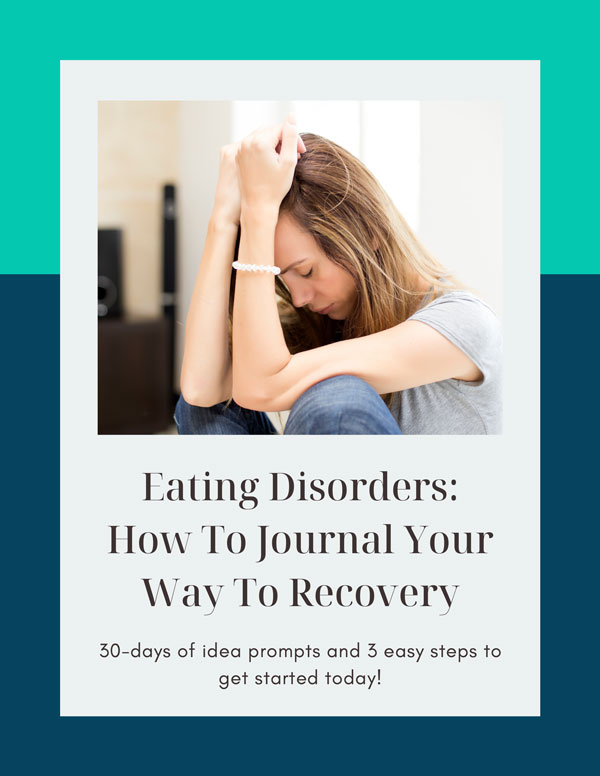
Distress Tolerance Skills in Recovery
Recovery from an eating disorder is uncomfortable- and if you are not uncomfortable you may not be pushing yourself. There are so many changes to manage- reducing and eventually eliminating disordered behaviors, body and weight changes, identifying resistance to change and talking back to eating disorder thoughts- to name a few. With change may come a lot of distress. One of the skills that helped me in my own personal recovery and that I teach to my clients is learning, practicing, and using DBT Distress Tolerance Skills.
What is Distress Tolerance?
Distress Tolerance is one of the four modules in Marsha Linehan’s Dialectical Behavior Therapy– a comprehensive cognitive behavioral treatment that teaches change and acceptance skills to help manage mental health issues. Initially developed to help those with Borderline Personality Disorder, DBT can be used in the treatment of depression, anxiety, substance abuse and eating disorders.
Some of the distress tolerance skills include ACCEPTS, SELF SOOTHE, IMPROVE the MOMENT, PROS and CONS, TIPP, STOP and RADICAL ACCEPTANCE. Distress can include extreme anxiety, sorrow, pain, very upset, physical pain and emotional suffering, The goal of distress tolerance skills is to handle the distressing situation without making the situation worse for you or others. It helps me to think of distress tolerance as putting a band aid on during a crisis- you do not solve the problem, but you prevent it from getting worse.
If I get into a fight with my boss and start to feel really overwhelmed and upset, I could
- Take a deep breath and STOP to gather myself
- Take a time out and get a cup of coffee
- Yell at my boss and risk getting fired
- Thrown my phone at the wall and risk breaking it
In this situation most people recognize that A and B are more effective, while answers C and D are less effective. So, how can distress tolerance skills be applied to eating disorder recovery?
How to tolerate urges:
Part of recovery from anorexia, bulimia or binge eating disorder is being mindful of urges to restrict, binge, purge or over-exercise and other disordered behaviors. For some the urge feels so strong that a person has an urge and then acts without thinking. However, to use distress tolerance, is to cope with the crisis without making the crisis worse (i.e. acting on the urge).
ACCEPTS is a distress tolerance skill that identifies seven different ways to distract yourself instead of acting on the urge. These skills include engaging in activities, helping others, comparing yourself to a different time in your life, changing your current emotions, pushing the pain away, distracting with thoughts and using sensations.
For some holding ice can be a distraction. Texting a friend. Buying a gift for a loved one. Listening to music. Counting backwards from 100. Taking a walk. Watching a funny movie. It does not matter how you distract yourself, accept that it needs to be effective and not harmful.
What are some reducing behaviors?
Reducing and eliminating eating-disordered behaviors is a key principle in recovery. For some they use the behaviors to cope with upsetting emotions, negative thoughts, and situations in which they feel no control. So, the behaviors give them a false sense of control, but really the eating disorder is controlling them.
One of the distress tolerance skills, Pros and Cons, can help with identifying the positive and negative consequences of a behavior. The skill helps you to decide to engage in a behavior or not by identifying the positive and negative consequences of engaging in the behavior and the positive and negative consequences of not engaging in the behavior. It is helpful to complete this list when you are in wise mind and use it when you are in a crisis.
Positive Consequences to binge Negative Consequences to binge
It is an emotional release I will feel sick to my stomach
It will soothe me Not deal with underlying issues
My anxiety reduces Pattern starts
Positive Consequences to NOT binge Negative Consequences to NOT binge
Feel Proud Need to sit through the discomfort
Improved sleep Hard to give up default behavior
Improved healthMay become more emotional
How are you accepting the moment?
Lastly recovering from an eating disorder may be one of the hardest journeys you will go on. Sometimes recovery sucks. You want to just scream and do anything to try and get out of your own skin, your own body. Radical acceptance is when you stop fighting reality, stop responding with self-destructive behaviors and let go of willfulness and bitterness by accepting the moment from a place deep within you.
For me personally weight restoration was particularly distressing to me. For weight stabilization I needed to gain a fair amount of weight quickly and the weight went directly to my stomach. I felt like I was pregnant, even though my treatment team educated me about weight restoration and that it would take time for my weight to balance throughout my body. Some days every part of me wanted to stop treatment. It was just too hard, but I dug deep and turned my mind towards acceptance. Rationally I understood that for me to recover, I would need to gain weight. My body was trying to find homeostasis and I accepted that with each pro-recovery step my body would eventually reach it.
My weight eventually spread throughout my body and as I eliminated behaviors consistently my weight stabilized at my set-point weight-a weight range that my body is comfortable with and that I can maintain without disordered eating. Accepting my set-point weight range was necessary for recovery.
There will be a lot of upset during recovery from an eating disorder. And full recovery is possible. How can you use distress tolerance skills in your eating disorder recovery today? Contact me to learn more.


